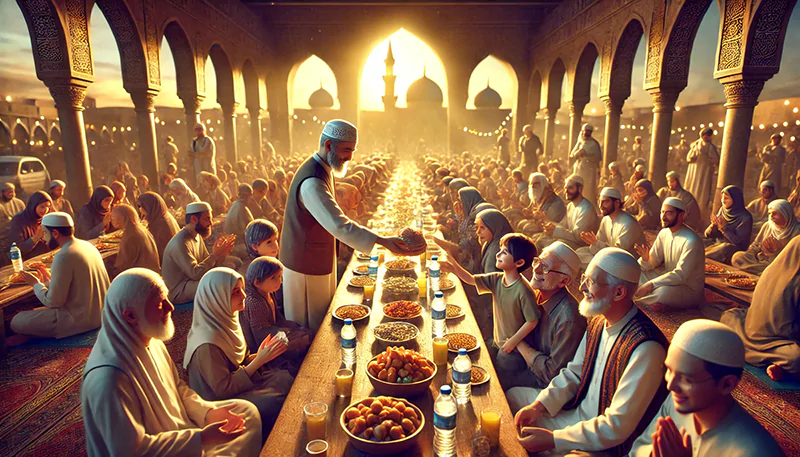IFTAR
Iftar (or Iftari) is the evening meal with which Muslims break their fast during the holy month of Ramzan (Ramadan) . It is consumed immediately before the evening Maghrib prayer , marking the end of the fasting day. The other meal during Ramzan is Sehri (Suhoor) , eaten before dawn.
Food Traditions and Customs
- No fixed menu: People consume whatever is locally available and culturally significant.
- Dates Tradition: Prophet Muhammad is believed to have broken his fast with dates , making them a popular choice for Iftar.
- Social Gathering: The meal is often shared with family, friends, and the larger community .
- Charity: Providing Iftar to the needy is considered an act of kindness and charity .
Spiritual Significance
- Reminder of Divine Blessings: Fasting reminds Muslims that everything comes from God and encourages gratitude.
- Discipline & Self-Control: The practice teaches restraint, mindfulness, and inner strength to observe religious duties.
Social and Cultural Significance
- Community Bonding: Iftar is a collective experience , reinforcing a sense of kinship and shared faith .
- Inclusivity: Even non-fasting individuals participate in the customs of Iftar.

UNESCO Recognition
- Intangible Cultural Heritage: In 2023 , Iftar was inscribed on UNESCO’s Representative List of the Intangible Cultural Heritage of Humanity .
-
UNESCO Description:
- Iftar is accompanied by prayers, music, storytelling, and games .
- Strengthens family and community ties , promoting charity, solidarity, and social exchange .
- The rituals are passed down through generations , with children actively learning the traditions.












